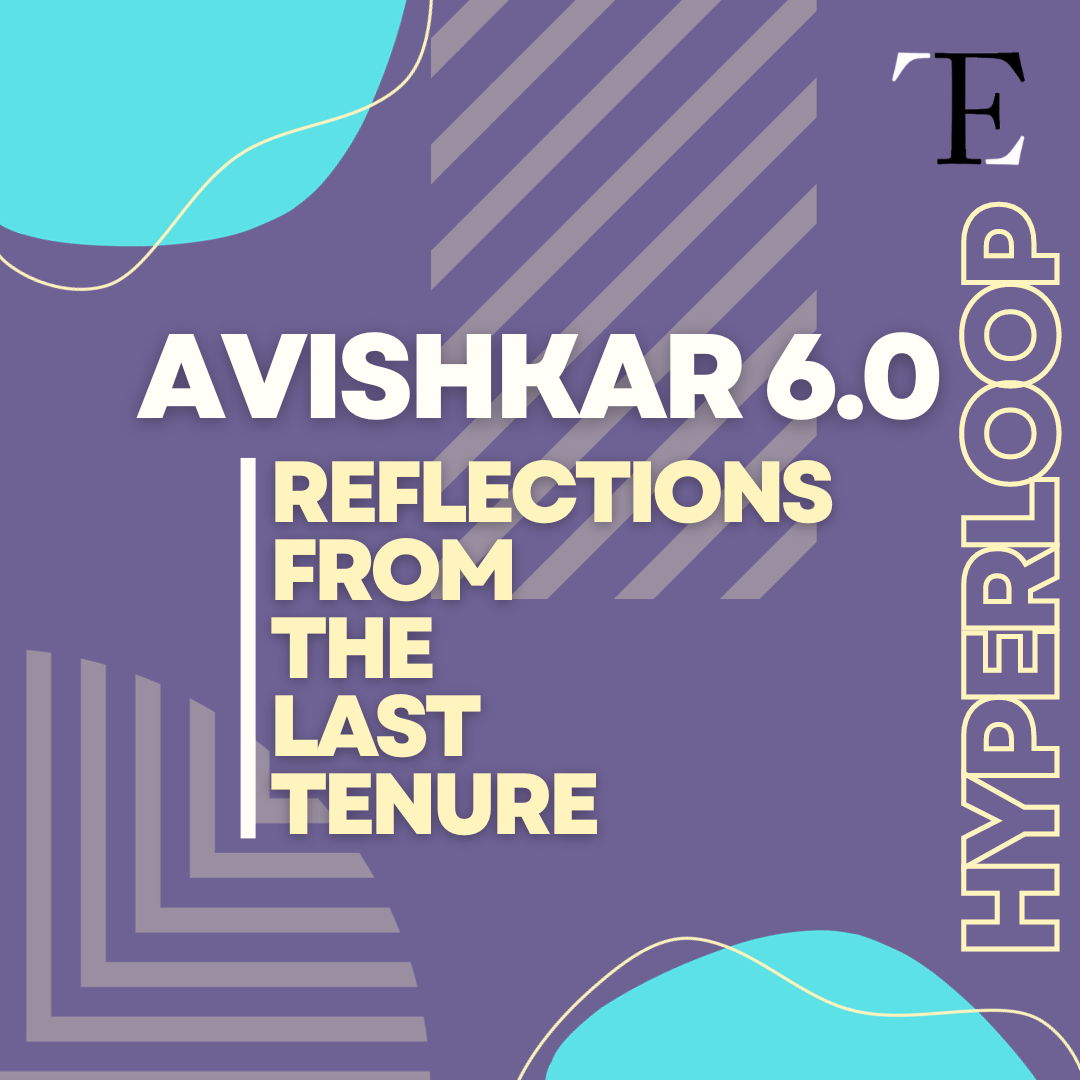Design: Swati Sheenum, G Shreethigha, Shaurya Rawat, Abhiram Pavithran O, and Hardhik Pinjala
This is a strange time in our history. The world is engulfed by an unexpected virus, and we are quarantined at our homes, leaving insti behind. In this new normal, we at T5E are trying to understand the complexities of the situation facing us at this point in our student lives. To this end, we conducted a survey covering aspects such as academics, productivity, mental health, accessibility, and much more.
T5E’s Quaran-time survey was conducted in the month of May among IITM students and it amassed a staggering 1177 responses in only three weeks. In this article, we present to you the survey analysis focusing on the Academic aspect and the impact this pandemic has on the student community.
Demographics
The survey was taken by a total of 1177 respondents. The demographics of the respondents were as follows:

Conduction of Examinations

The overall majority, 40.3%, of students wanted IITM to conduct examinations offline if it was possible to reopen in the month of June/July. The survey was conducted in May when the initial plan communicated was to conduct examinations offline for students in a staggered manner in the months of May/June/July which is not possible now given the current situation. 39.3% of the people were of the opinion to cancel examinations and give grades on the basis of Quiz 1/Mid Sems and assignments. 10.3% of people wanted exams to be conducted online with tough questions and a specific time window.
The remaining population was of varied opinions as an option to suggest an alternate method was given in the question. Some of the popular opinions of students were:
- “Cancel exams and take the weighted average of last semester’s grade point and relative scores till quiz 1.”
- “Conduct exams offline(as planned during May) or online but make all the courses in this semester Pass/Fail.”
- “Give assignments and conduct VIVAs for the rest of the evaluation and give grades on the basis of that.”
- “Just pass everyone with no grades and no exams.”
Pass/Fail Policy

Roughly 60% of the respondents were in favour of a pass/fail policy, while around 40% were against. The split seems to be drastic in case of final year students, where more than double voted in favour of the policy.
In the case of pre-final students, the two factors that drag opinion in two opposing directions. One, internships, which would minimize the amount of time they spend on regular academics. However, CGPA improvement is not the biggest suit of this policy, which might polarize decisions in the other direction.
Moreover, compared to a rigorous grading system, the pass/fail policy is slightly more lenient. Could dissatisfaction with the efficiency of video lectures be a factor in choosing this method of evaluation? The survey results agree with this. Those who chose the pass/fail policy found video lectures to be less effective in comparison to those who didn’t.
Online Academic Material

14.5% of students said that they are up-to-date with all the courses, 46.7% of students said that they are up-to-date with some of the courses and 38.8% of students were not at all up-to-date with all the courses.
There is very little correlation between a stable internet connection and students being up-to-date with courses. Having a stable internet connection does not necessarily increase the chances of being up-to-date with more courses as is indicative from the data in the figure above. 17.90% of people with a stable internet connection are not up-to-date with courses which indicates the impact of other factors such as mental health and productivity which may be causing this.
The majority falls in the category with a stable internet connection and being up-to-date with some of the courses because most of the people even while in insti are generally up-to-date with some of the courses and not all of them. A total of 51.9% of people have a completely stable internet connection. And a total of 94.6% of people have a stable internet connection or unstable but manageable connection.
Note: This number is also contingent on the fact that the people who took the survey would have an internet connection of some sorts (mobile data at least). Thus, this number is not indicative of the actual conditions and the actual percentage of people with an internet connection, which may be less than the above number.
Online Classes

About 83% of the students have access to online lectures either live or downloaded. In general, PGs seem to find the lectures more effective than UGs. 55.3% of UGs have rated below 2.5 stars vs only 44.9% of PGs have rated it below 2.5 stars. Average rating for different Degrees are as follows:
- BTech – 2.81
- Dual Degree – 2.77
- MTech – 3.43
- MSc – 2.76
- MA – 2.57
- MBA – 2.67
- PhD – 3.35
- Average Rating – 2.86
There is also a moderate correlation of stability of internet connection to the effectiveness of classes, which is expected. People having an unstable internet connection actually have rated lower figures more. The average rating for people with unstable internet is 2.57, while that for people with a stable internet connection is 3.13.
Doubt Clearing

Even though most of the students haven’t asked doubts, a fair amount of people claim that the doubts get cleared more or less soon. Most of the responses also claim that their friends are quite helpful in academic matters. This is also correlated with being anxious and nervous. People who responded that their friends were being less helpful, are shown to be more anxious and stressed.
Productivity

There has been a productivity decrease for 65.6% of people after insti closed indicative from the figure above. The amount of time spent on academics has decreased considerably with 1.73 hours being the average time spent on academics after lockdown which was 3.24 hours when in insti. The average time spent procrastinating (social media, YouTube, TV shows etc.) has increased after lockdown with the new average time being 4.5 hours while the old average time was 3.1 hours.
16.8% of students have also reported an increase in productivity after going into lockdown. This may be because of factors like comfort at home, strong support of family members etc. There is no correlation between the year of study and productivity increase/decrease. The majority of students from all years of study indicate a decrease in productivity.
Academic Stress

A majority of 56.19% of students reported that they are feeling the stress of academic responsibilities building up. The main reasons were that they felt that they are not as well caught up with academics as their peers and that they feel they will not be able to cope with academics in the end for examinations.

There seems to be an evident correlation between the academic pressure felt by respondents, and their perception of the effectiveness of online classes. The people who find the online lectures effective, are keeping up with them, and aren’t feeling stressed. The people who aren’t able to keep up with the lectures and are stressed, do so as a result of not finding the online lectures as effective as in-class lectures.
Support at Home

Is internet connectivity the only factor to be accounted for while deciding the mode of examination? Apparently not. To attempt an examination at home would be to put up with significantly more distraction which (unknowingly) stems from other people that one has been quarantined with. To explore this data further, we analysed the popular opinions on exam conduction versus the average number of people quarantined with. Those who had voted against online modes of examination seem to have been quarantined with a larger number of people.
We also looked at the average rating of supportiveness of the people quarantined with (responses were measured on a scale of 1-5) versus opinion on pass-fail policy. Those who voted in favor of the pass-fail policy felt that they were quarantined with marginally more supportive groups. The general consensus is that: those quarantined with larger or lesser supportive groups were reluctant towards online/ rigorous testing methods.
Conclusion
Overall, the survey shows a considerable impact of the lockdown on the academics of students at IITM. It is clear that not just access to the internet determines the academic performance or productivity of a student during these times. Various other factors like mental health, stress, support from people you are quarantined with, and so on, also play a role. The survey also shows a decrease in productivity and the number of hours spent on academic activities for a large majority of people.
These are difficult times. Ultimately, this survey aims at reminding us all that we are in this together. We thank everyone who has taken the time to respond to the survey.
Check out other parts of the Quaran-Time Survey:




